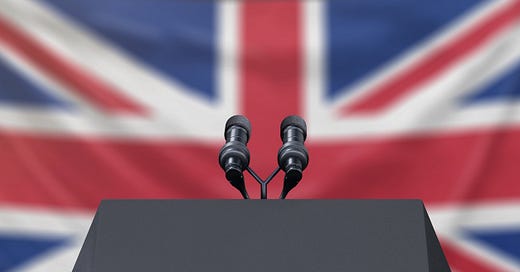Food inflation rates recently reached a record high of 13.3% in the United Kingdom, with the effect of similar rates being felt in Canada. So it's little wonder that the British Royal Family, which includes His Majesty King Charles III, the Head of State of Canada, has been radio silent regarding the release of Prince Harry's memoir, "Spare." A major cost-of-living crisis provides rough ground for a tell-all book about the well-off Royal Family to land.
There has already been much discussion about the content of Prince Harry's book, which takes direct aim at the British press and makes public numerous deeply personal issues between him and the Royal Family.
Regardless of someone's position on the book or the characters within, one of the more important details that is being overlooked in the hoopla surrounding its release is the significance of the Royal Family's restraint in providing immediate public comment about it.
Some of Meghan, the Duchess of Sussex and Prince Harry's public forays in the last few months - and some of the vile reactions to them - consider serious topics, particularly those related to racism and the intrusiveness of the British press. The Royal Family giving pause for thought on how best to respond may not be a bad thing.
Only time will tell if they will make the right choices in the wake of the book's release. And there will be arguments made that the Royal Family has had many opportunities to head much of "Spare" off at the pass. But pausing to digest the book without immediately launching a response in the heat of the moment demonstrates wisdom.
In today's day and age, doing so can be incredibly difficult. Social media has eliminated the time between a story breaking and public demand for comment. Even fifteen years ago, there would be time to consider the merits of commenting and what the comment should be before doing so. Now, immediate, poorly-considered hot takes are the norm. And, as we are seeing with the case of the Royal Family this week, not immediately commenting on an issue can become a full-blown story in and of itself.
Watching the Royal Family refrain from hamfistedly wading into the headlines is remarkable. The urge for public figures to attempt to "correct the record" in these situations can be difficult to resist. But the Royal Family's careful approach shows a measure of self-awareness of the fact that the public might not take kindly to people who serve in taxpayer-funded, largely ceremonial roles pouring fuel on a media shit-storm about issues related to members of their own extended family. It also shows that they understand that at this juncture in history, Commonwealth nations can ill afford the potential unrest that a prolonged, internecine, public family feud within the Royal Family could cause.
This is not to say that issues of concern to the public should go unaddressed. But where media outlets profit from the escalation of publicly aired dirty laundry via the maladroit responses of public officials, the public rarely does. More often, those circumstances limit a nation's successful governance.
Having been first elected as a Canadian Member of Parliament just as social media platforms like Facebook and Twitter were emerging in politics, I certainly haven't been perfect on this front. But I've tried to learn from my stumbles. I now realize that I can do little to control my public narrative outside of ensuring that my actions don't create or give proof to negative perceptions and prove the opposite. So it's up to me to ignore the rest and continue with the business my constituents have elected me to do.
Those in leadership positions can't afford to waste time and airspace attempting to control their narrative with mere words. Actions and the choice of what they focus their time on are what matters to the public and what forms the basis for a lasting opinion. And taking time to let the heat of a moment pass, not to be goaded into an instant response, while considering the best course of action on something extremely volatile with an enormous potential impact rarely results in a negative outcome.
The opposite approach almost always does.
This means caring less about the day-to-day grind of public perception about oneself and more about making the right choices to show the public that they can trust the person in question to get the job done. A political leader who does things like putting their ego first, or who fails to resolve a personal conflict with grace, or is unable to use discernment in communications when the public is counting on them to deliver, is virtually guaranteed to step in it and lose public support over the long term.
It's also usually a surefire way to stoke public tensions and erode faith in the efficacy of our democratic institutions.
May there be more restraint, boringness, cooler heads, and fewer ill-conceived hot-takes in our political future.




